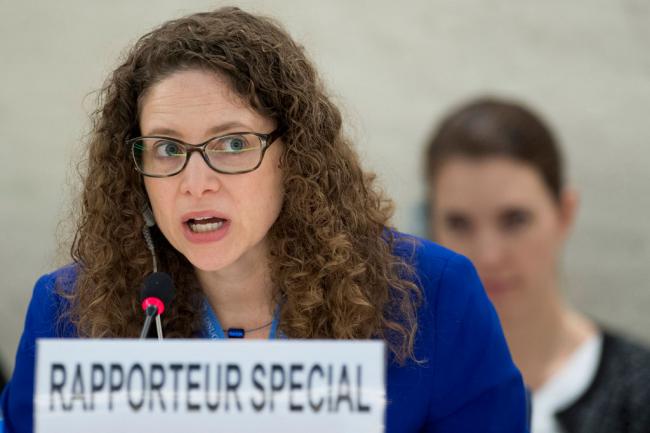
Karima Bennoune, UN Special Rapporteur on cultural rights, visited the country from 24 May to 2 June to assess efforts to enhance the enjoyment of cultural rights by all people.
Expressing concern about the administrative obstacles posed by the division of Cyprus, she condemned unjustified restrictions on access to cultural heritage for religious ceremonies, including those that were announced by the Turkish Cypriot authorities during her visit.
“The attempt to increase restrictions has been harmful,” Bennoune said, calling for any unfounded restrictions to be lifted and urging the Cyprus government to abstain from any retaliatory measure. “Cultural rights, including the right to enjoy and access cultural heritage shall not be considered as a bargaining chip,” the independent expert stressed.
The Special Rapporteur stressed that there are issues of access to cultural sites in the south of the country, although there is a tendency to consider that such issues only happen in the north.
“The Government should make every effort to end de facto limitations on accessing cultural sites, including through clarifying opening hours, simplifying processes for accessing particular sites, and providing for essential facilities such as water and washrooms at some sites,” she said.
“Cyprus is making a great deal of efforts to ensure that cultural heritage, which is at the centre of great tensions and could potentially undermine reconciliation, contributes to the solution”, the expert highlighted.
Thanks to the opening of the crossings, the expert noted, people visited their old villages and neighbourhoods, their old churches, mosques and cemeteries. “They started talking to each other again, to recognize and re-humanize each other,” she added. “In this way, cultural heritage can promote human rights.”
The Special Rapporteur regretted that an application to include the Hala Sultan Tekke Mosque on the UNESCO World Heritage List was made “without involving the people having a particular link with the site, when such project may carry significant implications for them in terms of access and maintenance of the site.”
The expert noted that Cyprus’s society currently includes not only Greek and Turkish Cypriots, but also a mosaic of historic minorities and more newly arrived persons, people of mixed identities, and those who chose to identify in some other fashion altogether.
“Each person should have a right to self-identify,” she underscored. She noted that different people may have diverse historic relationships with the island of Cyprus, which must be acknowledged and respected, but all must enjoy their cultural rights without discrimination.
The Special Rapporteur will present a comprehensive report on her visit to Cyprus to the UN Human Rights Council in March 2017.
Independent experts or special rapporteurs are appointed by the Geneva-based Human Rights Council to examine and report back on a country situation or a specific human rights theme. The positions are honorary and the experts are not UN staff, nor are they paid for their work.
UN Photo/Jean-Marc Ferré
Source: www.justearthnews.com
Support Our Journalism
We cannot do without you.. your contribution supports unbiased journalism
IBNS is not driven by any ism- not wokeism, not racism, not skewed secularism, not hyper right-wing or left liberal ideals, nor by any hardline religious beliefs or hyper nationalism. We want to serve you good old objective news, as they are. We do not judge or preach. We let people decide for themselves. We only try to present factual and well-sourced news.







